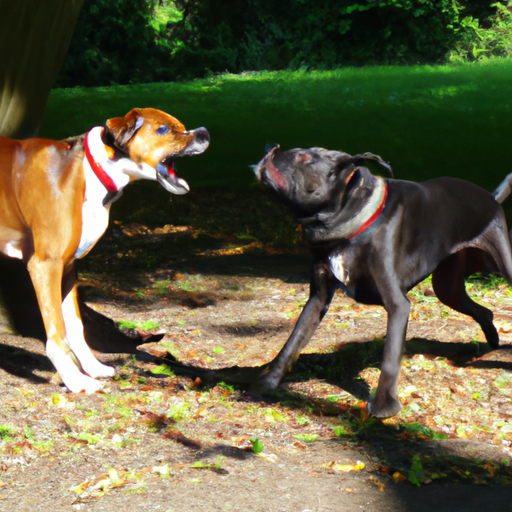As a caregiver, you have a critical role in ensuring the wellbeing of your pets. Your understanding of their behavior can help prevent conflicts and promote harmonious cohabitation. This article will guide you through the signs that may indicate that your dogs aren’t getting along.
H2: 1. Recognizing Aggressive Body Language
Dogs communicate largely through body language. If your dogs don’t like each other, they may display signs of aggression.
- Stiff body posture or bristling fur
- Snarling or showing teeth
- Growling or barking at each other
- Ears pinned back against the head
If you notice these signs, it’s essential to intervene immediately to prevent any potential harm.
H2: 2. Observed Changes in Behavior
Another sign that dogs may not be getting along is a noticeable change in behavior.
- Increased Anxiety: Dogs may start pacing, whining, or showing other signs of stress.
- Avoidance: One dog may consistently avoid the other, or they might try to hide when the other is around.
- Changes in Eating Habits: Either dog may lose their appetite or try to guard their food more aggressively.
- Sleep Disruptions: Sleep patterns might change, with one or both dogs seeming restless or unable to settle.
H2: 3. Interpreting Playtime Dynamics
It’s normal for dogs to play rough, but there is a fine line between play and aggression. If playtime between your dogs includes any of the following, they might not be getting along:
- One dog always seems to be the ‘bully,’ and the other is frequently the ‘victim.’
- Play sessions frequently escalate into fights.
- One dog appears stressed or scared during or after play.
H2: 4. Health Effects of Constant Stress
Prolonged stress from not getting along can lead to health issues in dogs. Keep an eye out for signs such as:
| Symptom | Description |
|---|---|
| Loss of Appetite | Eating less than usual |
| Excessive Grooming | Over-licking or biting at their fur |
| Frequent Illness | Getting sick more often than usual |
H2: 5. Professional Assessment
If you’re still unsure about whether your dogs get along, consider seeking professional help. A professional dog trainer or behaviorist can assess your dogs’ interactions and provide expert advice.
Frequently Asked Questions (FAQs)
Q: Can dogs that don’t get along ever become friends?
A: Yes, with careful training and patience, it’s possible for dogs to improve their relationship.
Q: How can I help my dogs get along better?
A: Ensuring each dog has their own space and resources (like food and toys) can help. You might also consider professional training or behavior modification.
Q: What should I do if my dogs fight?
A: Your safety is important. Don’t physically intervene. Instead, try to distract them with a loud noise, or use a barrier to separate them.
Remember, as a caregiver, your understanding and patience are key in helping your pets form a peaceful relationship.



